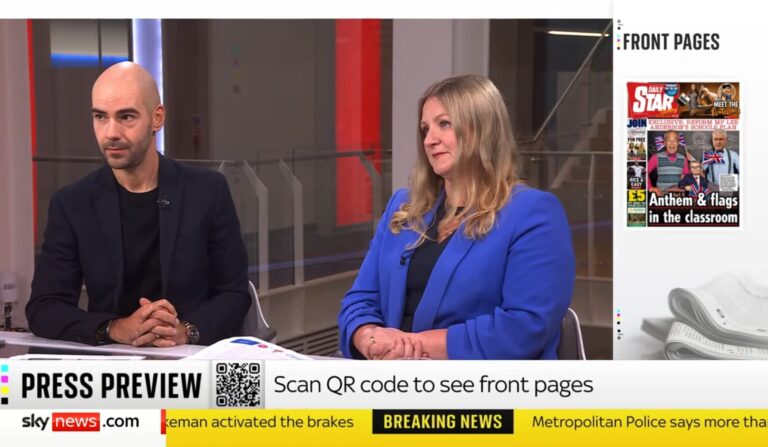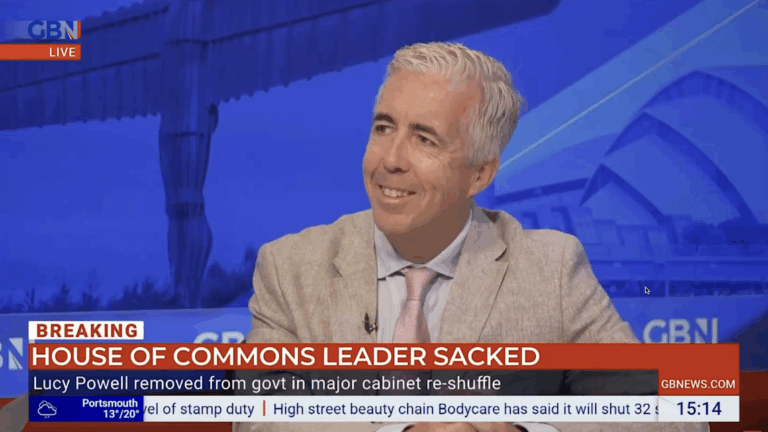Although 2025 has only just begun, the media landscape is already shaping key political narratives. In an era where public perception can be heavily influenced by real-time media engagements, a well-executed communication strategy can be decisive in shaping reputations. Two recent high-profile appearances – Foreign Secretary David Lammy’s interview on Radio 4’s Today programme; and Los Angeles Mayor Karen Bass’s doorstep encounter with Sky News – highlight the difference between effective media management and a failure to engage.
Lammy’s measured and strategic approach reinforced his credibility as a statesman, while Bass’s refusal to respond to critical questions risked deepening public distrust. These cases underscore the importance of media proficiency in modern political leadership.
The Winner: David Lammy – In Control and Confident
Last week, Foreign Secretary David Lammy appeared on BBC Radio 4’s Today programme, in the highly scrutinised 08:10am segment – an interview slot reserved for senior political big hitters, meaning you can’t just wing it. It is crucial to be prepared and know exactly what needs to be said, and to take control of the interview once it begins.
Lammy, once known for his forthrightness in opposition, demonstrated a more calibrated approach in his role as Britain’s top diplomat. His strategy was clear: prioritise unity over division and maintain a disciplined message to avoid entanglement in contentious diplomatic disputes.
Common ground
When questioned about the soon-to-be US President Donald Trump, Lammy avoided referring to his past criticisms, and instead reframed the discussion around shared priorities, emphasising a mutual commitment to increased defence spending. This allowed him to engage constructively without being drawn into a fraught exchange.
On the Israel-Gaza war – a conflict that has exposed deep divisions within his own party – Lammy maintained the government’s established position. He reinforced support for both a ceasefire and a hostage deal, thereby addressing the concerns of both sides. By reiterating these points consistently, he avoided alienating key audiences while upholding the government’s diplomatic priorities. His remark, “Diplomacy is often failing until it succeeds,” encapsulated his doctrine of Progressive Realism – a pragmatic approach that acknowledges geopolitical realities while pursuing long-term diplomatic solutions. All of this shows Lammy seizing control of this broadcast opportunity and to use it as a platform to make his points, rather than wait for the invitation to do so.
Lammy’s interview underscored the critical importance of mastering both the subject matter and one’s own ideological framework. His responses were assured, deliberate, and authoritative, reflecting a politician with a clear strategic vision. His ability to navigate complex issues without being sidetracked demonstrated a command of statecraft and media savviness that is essential for his role.
Ultimately, Lammy’s performance was a demonstration of disciplined political communication. As former Tony Blair adviser John McTernan described it, this was a “tour de force” – an adept balancing act between conviction and diplomatic pragmatism.
The Loser: Karen Bass – The Silent Treatment
Last week, Los Angeles Mayor Karen Bass refused to respond when approached by Sky News correspondent David Blevins for comment on the ongoing wildfires devastating the city.
As the fires continued to spread, the death toll rose, and severe water shortages forced firefighters to rely on alternative sources, including lakes and residential swimming pools, to combat the blazes.
Blevins posed direct and pressing questions to the mayor, including: “Do you owe citizens an apology for being absent while their homes were burning?” and “Do you regret cutting the fire department budget by millions of dollars?” However, Bass remained silent. When asked, “Have you absolutely nothing to say to the citizens today?” she avoided eye contact and quickly departed without issuing a statement.
Accountability
It is common for politicians to avoid doorstep interviews to mitigate the risk of providing an impromptu response that could be perceived as damaging. However, this instance highlights the significant reputational cost of remaining silent in a moment of crisis.
Additional questions included: “Are you considering your position?” and “Do you think you should have been visiting Ghana while this was unfolding back home?” Bass’s refusal to engage only reinforced perceptions of detachment and unaccountability.
Be prepared
Had Bass learned from the Lammy playbook, she’d have troubleshot and thought ahead about this media encounter happening. If she had prepared a statement such as “I am heartbroken by what is happening to the citizens of this city. My thoughts are with everyone affected. We will get through this together” – it would have shifted the narrative. While such a statement may be perceived as formulaic, it would have reframed headlines from “LA Mayor Remains Silent on Fires” to “LA Mayor: We Will Get Through This.” Organisations can learn from politicians here as being prepared for the unexpected means you won’t be lost for words.
In crisis communications, an absence of response can be incredibly damaging. By failing to acknowledge public concern, Bass not only ceded control of the narrative but also risked deepening public distrust in her leadership at a critical moment. Business leaders should use this interview as a cautionary tale on the importance of planning ahead and knowing your key messages when a crisis strikes.
This website uses cookies so that we can provide you with the best user experience possible. Cookie information is stored in your browser and performs functions such as recognising you when you return to our website and helping our team to understand which sections of the website you find most interesting and useful.






